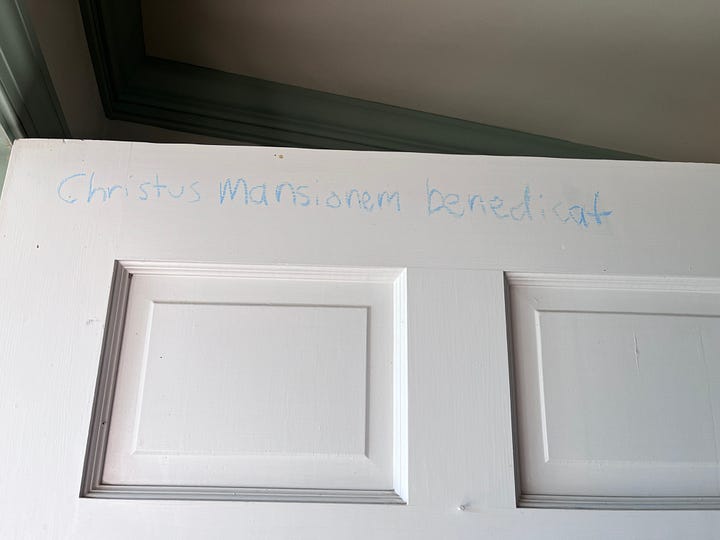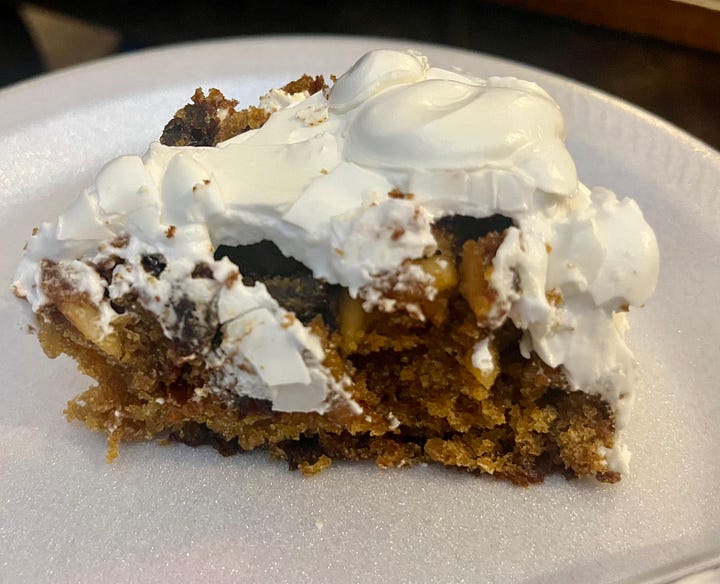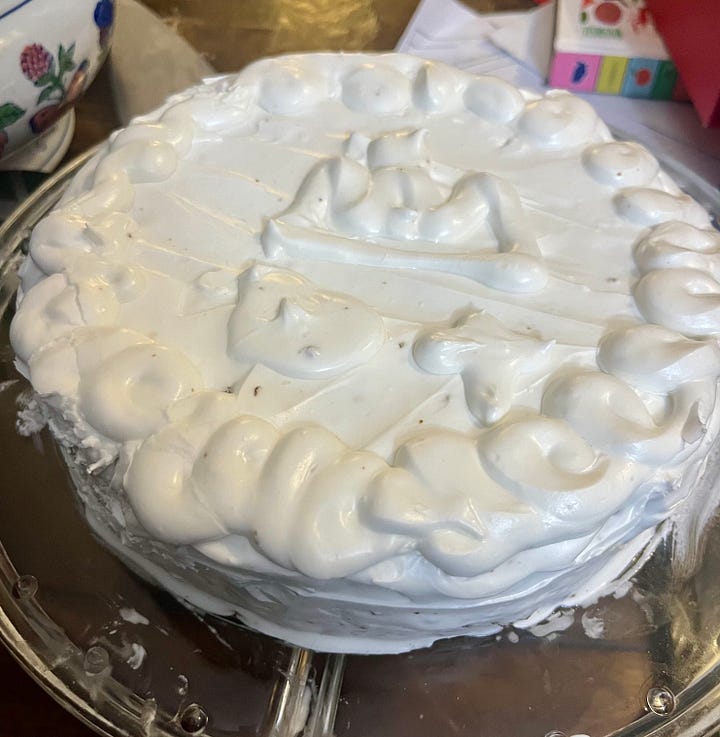Epiphanytide Is Upon Us: How to Celebrate
Forever learning about liturgical holidays of the Christian calendar is part of the fun of being evangelical-turned-mainline.




I never knew what the song “The Twelve Days of Christmas” (a song I love, by the way, as I love most hated Christmas songs — except for “Mary Did You Know?” and “Christmas Shoes” as yes, those do suck) meant until I left my Pentecostal church and started attending a United Church of Christ church. The UCC is famously… not uniform; it has more congregational vibes than strictly liturgical ones, and everything is perpetually up for personal or church-wide interpretation. Some UCC churches are more “evangelical” in nature (nothing wrong with that — I often miss the music and emotion of the evangelical church!), and others are basically Episcopalian in operation.
My church tends more toward the latter, and because of that, I get to experience the (Western) Christian calendar. I often joke that the only religious holidays in an evangelical church are Christmas, Easter (or “Resurrection Sunday” if they hate secular “paganism”), Mother’s Day, and Independence Day.
The twelve days of Christmas are from December 25 to January 6. Epiphany is the day we celebrate Jesus’ presentation to the Gentiles via the magi. Of course, biblically speaking, the “wise men” only appear in Matthew. We know only that there were three gifts (gold, frankincense, and myrrh) and that they came “from the East.” Many nativities feature them present at the stable in Bethlehem. In contrast, others assert they didn’t appear to Christ until two years later, perhaps when he lived in Egypt. The Massacre of the Innocents and King Herod are all tied in since the wise men visited Herod and were supposed to inform him of where he could find the Christ child to kill him. But they did not!
Catholic and Orthodox traditions named the wise men, gave them distinct home locations, and numbered them based on the three gifts: Balthazar (who gave myrrh) from Arabia or Ethiopia, depending on tradition, Caspar (who offered frankincense) from India, and Melchior (who gave gold) from Persia. This isn’t biblical, and since I’m not much of a literalist, even when it does come to the Bible, these are likely stories and traditions rather than factual history.
But for me, as a rationalist Christian, the distinction matters less and less to me these days. I love celebrating Christianity and its meaning, and the exploration of Epiphany this year has been more meaningful to me than Advent or Christmas. However, I certainly love this season overall, and my heart breaks in pain when I think about what is happening in present-day Bethlehem right now.
Epiphanytide, or the weeks after Epiphany, are becoming increasingly celebrated. The Baptism of the Lord is supposed to be celebrated a week after Epiphany. Still, many people celebrate Epiphany until the beginning of the Lenten season, when we swap wonder and gifting for lament and self-sacrifice. (Others only celebrate until Candlemas… a February Christian holiday I have yet to parse fully!)
This year, I learned of ancient Christian traditions — a little pagan in nature, as the orthodox and liturgical branches are wont to do — for Epiphany. The first is more cultural: the Twelfth Night cake. It’s a British cake (according to DNA tests, my genealogy is a whopping 96.2% from the British Isles), similar to Christmas pudding cakes. It’s fallen out of favor, but I will make it every year because I was incredibly impressed with its deliciousness. People hate on British food, but I love the historicity of it. And I hope to improve my royal icing piping skills next year! I’m an excellent baker but less so of a decorator.
The other tradition was this: Chalking of the Door. Like how early Hebrew communities marked their doors for Passover, this is done to protect your home for the coming years. Using chalk, you write a blessing on your door. You can choose either the VERY pagan saying: “20 ✝ C ✝ M ✝ B ✝ 24” (2024 being the year, C, M, and B being the aforementioned first letters of the magi’s names, the crosses… well, that’s probably obvious) or write “Christus mansionem benedicat” (Christ bless this house) or the simple “IIIK” for the Roman numeral for three and K for kings.'
I happen to be in an important housing transition (in which I hope you will all hold me in prayer, send me good thoughts, share my blog, and/or consider becoming a paid subscriber!) in that we recently purchased a home and are spending the next two months renovating it before moving in on Presidents’ Day weekend. I have to pay double the mortgage and rent (the lease is up in March, but the house was too good of an opportunity to pass up) for two months.
Since I have two homes at the moment, technically, I chose the “CMB” one for our current home and the Latin blessing (I took Latin in high school, so I’m partial) for the new home. It seemed the fitting time to do it: I say goodbye to the house that saw a merging of Ty into the family with me, Daniel, and the kids, that got us through the pandemic, that held so many memories… and say hello to a house we will be staying at for the next decade at least, one that we will care for and thrive and nurture, one that holds so many of my unrealized hopes and dreams about homemaking and gardening and food, all of which has been a great source of comfort to me these days as I get older. The kids will have space to become their own people and, eventually, transition into adulthood, which is happening sooner rather than later!
We aren’t sure how we will manage the next three months financially. Still, we have a peace about it and are working hard (I’m taking on more roles and assignments and starting a new editing gig at the end of the month, Ty is doing DoorDash, and Daniel is doing extra hours and tutoring at his school… all while we do renovations, parent, and panic about moving) and hoping and working toward a realistically decent future.
For me, Ephiphanytide isn’t just an extension of Advent and Christmas. It’s something that stands on its own. We waited, we celebrated, and… now what? We exist. We participate. We think about the encounter, how we will make it part of our lives, and how it will change us. As I’ve been doing a daily yoga practice with my very favorite YouTuber, Adriene Mishler of Yoga with Adriene, for her famous “30 Days of Yoga” series that comes out each January, she asked us to set an “intention” for the 30 days. I’ve done this for years, but for whatever reason, the word “participate” kept coming up again and again. I don’t know what that means for my year or life, but I hope to discover that in the coming weeks.
As we settle into the precious, unhurried, and dreary time of non-Christmas winter, the usual promises of mid-winter slowness aren’t available to me as my life becomes hectic with transition. But I ask myself: how can I participate?
(If you have any ideas for me — or for yourself! — please comment below.)



